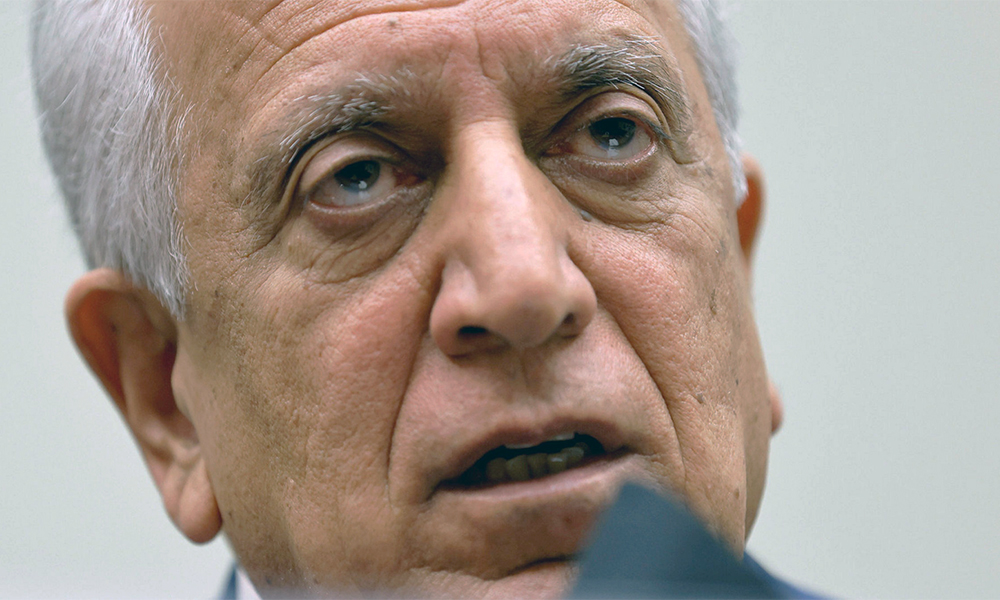Khalilzad opens up about Ghani and ‘selfish’ political elite

Former US special envoy for Afghanistan Zalmay Khalilzad said former president Ashraf Ghani’s “intransigence,” the Afghan elite’s “selfishness” and Afghan soldiers’ lack of will to fight was to blame for the rapid takeover of the Islamic Emirate of Afghanistan (IEA) in August.
On Ghani’s refusal to change his views, or agree to the formation of a new interim government, Khalilzad said: “We were all surprised by the intransigence of President Ghani in insisting on staying in power till his term ended, despite the fact that he had come out re-elected in a fraudulent election that very few Afghans participated in.”
Addressing a webinar organized by the Carnegie Endowment for International Peace, a Washington think tank, on Wednesday, Khalilzad also acknowledged for the first time publicly that the U.S. had discouraged Afghans from holding the presidential elections that led to Ghani’s winning a second term in office.
According to Khalilzad, the U.S. wanted to establish an interim administration that was acceptable to both sides while Afghan politicians and civil society negotiated a political settlement with the IEA.
Khalilzad said Ghani’s “grand miscalculation” was that he did not believe the U.S. would withdraw from the country.
According to Khalilzad, Ghani thought the U.S. forces and intelligence agencies would stay in Afghanistan as it gave them physical proximity to strategically important countries like China, Russia, Iran and Pakistan.
“I tried to persuade him that President [Donald] Trump was very serious, and he said, ‘No, the intelligence and military told me otherwise,’ ” Khalilzad said.
Khalilzad also stated that Ghani miscalculated his own military’s will to fight.
Once the U.S. announced its decision to withdraw, Ghani told Khalilzad, “now I am free to fight the war the Afghan way. In six months now I will defeat the Taliban because you were fighting it poorly.”
Khalilzad went on to say that the fact that an estimated 300,000-strong Afghan army melted away in front of 60,000 IEA fighters was the result of a lack of morale, corruption and poor treatment of the soldiers on the front lines.
He said this also might have been because the soldiers “didn’t believe” in the cause, while the IEA fighters felt otherwise.
Khalilzad also blasted what he called the Afghan elite’s “selfish, self-centered, corrupt” behavior.
“I am disappointed that the elite that we worked with; they didn’t rise to the occasion; this golden opportunity that the American engagement provided,” he said.
In terms of going forward, Khalilzad advocated a robust diplomatic engagement with the IEA that includes an agreement on a “road map that takes into account the trust or mistrust of each other and the behavior that needs to take place over a time period.”
He also said that many in the US want the IEA to suffer and their government to collapse, because “we did not succeed in defeating them, and that has left a bad taste in people’s mouths.”
But he warned that a collapse of government in Afghanistan would lead to a civil war and a humanitarian catastrophe that would provide space for terrorist groups to flourish.
He said the IEA had shown, in the 18 months after signing the Doha agreement, that they could keep their word by not killing a single American even though U.S. air attacks in defense of Afghan forces killed hundreds or even thousands of Taliban during that period.
Khalilzad also said the IEA could benefit from outside help on how to deal with Daesh in Afghanistan.
